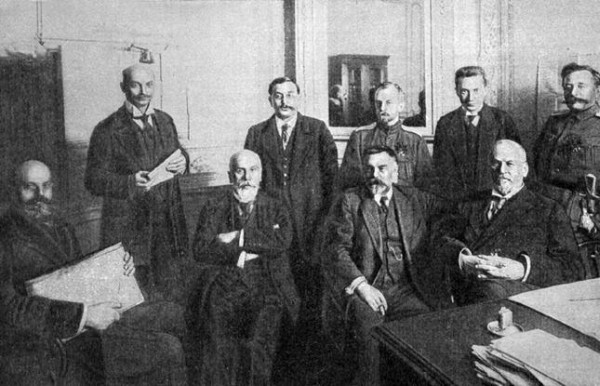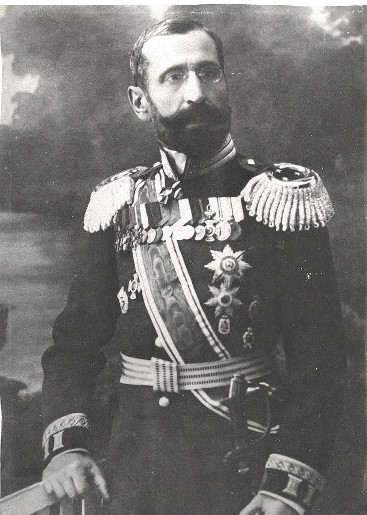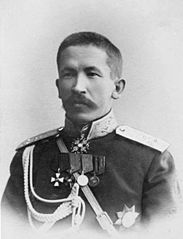White, Blue, and Red
A Russian Revolution Forum Game

The Romanov dynasty celebrated its 300th year of rule on 6 March, 1913, in a ceremony full of splendor. The tercentenary of Romanov rule was accompanied by a wave of monarchist support across the Russian Empire. However, 4 years and 9 days later, the reigning Emperor and Autocrat of All the Russias, Nicholas II Romanov, abdicated the Russian throne in favour of his brother Michael Romanov, Grand Duke of Russia. However, republican sentiment has taken hold of Russia, and a Provisional Government led by Prince Georgy Lvov. Only three days earlier, on 12 March, the Petrograd Soviet was established by disaffected soldiers and workers in the city. As internal division plagues the Russian government, the German Army continues its campaign against the disheartened Russian forces. With the situation at the front worsening each day, and with separatist elements in Finland and Ukraine already arming for war, the political factions in Russia are hard-pressed to reverse the decline and breakup of their nation.
Welcome to White, Blue, and Red: A Russian Revolution Forum Game! This game will focus on the politics of the Russian Provisional Government and Petrograd Soviet. However, warfare will also play a role in the game, in the form of battles, rebellions, and coups. Players will take on the role of a historical character or will create their own character. Characters are divided into two different groups: Politicians and Militarists. Politicians are leaders and members of political organizations (examples include Alexander Kerensky, Vladimir Lenin, and Grand Duke Michael Romanov), and they can engage in the affairs of government. Militarists are military leaders (such as Lavr Kornilov and Aleksei Brusilov) and they engage in warfare. Both Politicians and Militarists can influence both governmental and military affairs, but each has a primary function. For example, the Provisional Government can dismiss generals, and powerful military commanders can rebel or attempt a coup.
Laws and Orders
In White, Blue, and Red, politicians can propose and vote on bills to create laws, sign treaties, and set national policies. This is all handled in-character and in-thread. Militarists, on the other hand, will send war orders to the War GM, Korona. War Orders from Militarists, will, as per usual, be decided by a series of rolls.
Updates
Updates will usually cover one month of time. However, there may be mini updates for certain important events, such as a coup.
Deadline
The deadline for legislative procedures and orders will be set by the GM, but it will usually be around 0:00 GMT on Saturdays. However, this is subject to change.
Coldfront
While not mandatory, IRC is a good tool to use for negotiation and planning. The coldfront channel for this game is #RedWhiteandBlue. Here are instructions for joing the channel:
1. Go to coldfront.net
2. Create a screen name (using your forum name is helpful, but certainly not mandatory)
3. Type in the client "/join #RedWhiteandBlue" without the quotation marks
4. Welcome to IRC!
A Russian Revolution Forum Game

The Romanov dynasty celebrated its 300th year of rule on 6 March, 1913, in a ceremony full of splendor. The tercentenary of Romanov rule was accompanied by a wave of monarchist support across the Russian Empire. However, 4 years and 9 days later, the reigning Emperor and Autocrat of All the Russias, Nicholas II Romanov, abdicated the Russian throne in favour of his brother Michael Romanov, Grand Duke of Russia. However, republican sentiment has taken hold of Russia, and a Provisional Government led by Prince Georgy Lvov. Only three days earlier, on 12 March, the Petrograd Soviet was established by disaffected soldiers and workers in the city. As internal division plagues the Russian government, the German Army continues its campaign against the disheartened Russian forces. With the situation at the front worsening each day, and with separatist elements in Finland and Ukraine already arming for war, the political factions in Russia are hard-pressed to reverse the decline and breakup of their nation.
Welcome to White, Blue, and Red: A Russian Revolution Forum Game! This game will focus on the politics of the Russian Provisional Government and Petrograd Soviet. However, warfare will also play a role in the game, in the form of battles, rebellions, and coups. Players will take on the role of a historical character or will create their own character. Characters are divided into two different groups: Politicians and Militarists. Politicians are leaders and members of political organizations (examples include Alexander Kerensky, Vladimir Lenin, and Grand Duke Michael Romanov), and they can engage in the affairs of government. Militarists are military leaders (such as Lavr Kornilov and Aleksei Brusilov) and they engage in warfare. Both Politicians and Militarists can influence both governmental and military affairs, but each has a primary function. For example, the Provisional Government can dismiss generals, and powerful military commanders can rebel or attempt a coup.
Laws and Orders
In White, Blue, and Red, politicians can propose and vote on bills to create laws, sign treaties, and set national policies. This is all handled in-character and in-thread. Militarists, on the other hand, will send war orders to the War GM, Korona. War Orders from Militarists, will, as per usual, be decided by a series of rolls.
Updates
Updates will usually cover one month of time. However, there may be mini updates for certain important events, such as a coup.
Deadline
The deadline for legislative procedures and orders will be set by the GM, but it will usually be around 0:00 GMT on Saturdays. However, this is subject to change.
Coldfront
While not mandatory, IRC is a good tool to use for negotiation and planning. The coldfront channel for this game is #RedWhiteandBlue. Here are instructions for joing the channel:
1. Go to coldfront.net
2. Create a screen name (using your forum name is helpful, but certainly not mandatory)
3. Type in the client "/join #RedWhiteandBlue" without the quotation marks
4. Welcome to IRC!








.jpg)
